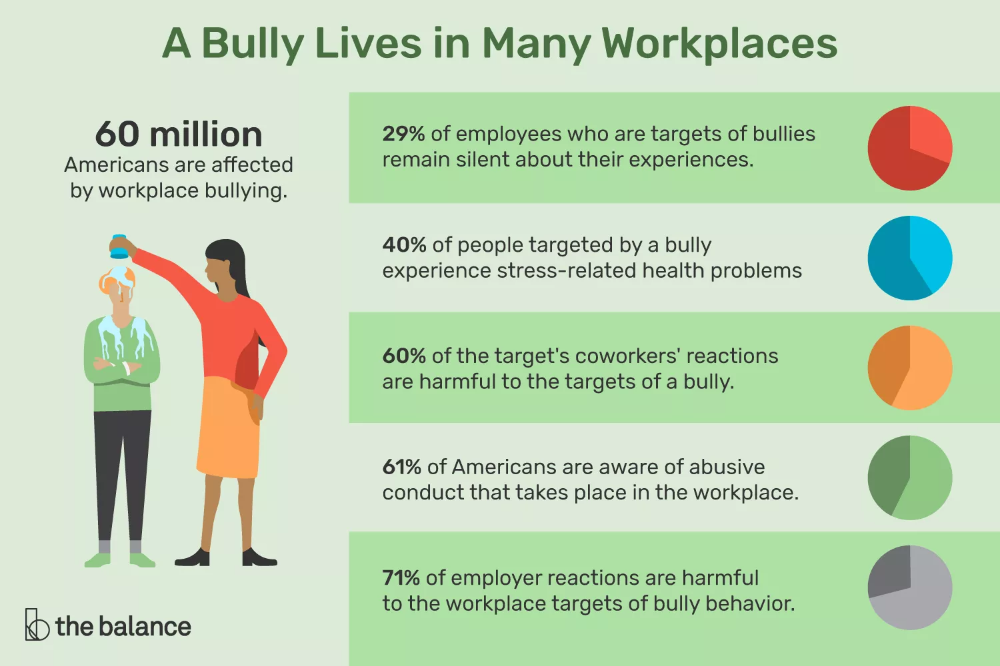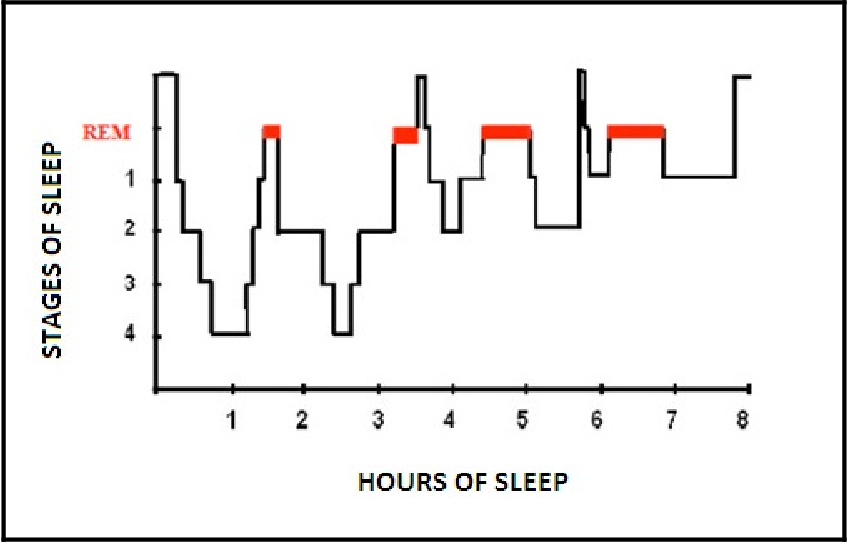What does it mean when your dreams feel real
Causes and How to Stop Them
Ever have one of those dreams that feels so unbelievably real that you just can’t shake it off once you wake up? Like, you can’t stop checking your mouth for the teeth you swear you just pulled out. Or you seriously just landed flight 1549 on the Hudson without any casualties (and that Sully stache looks surprisingly good on you).
So what’s the deal? Is it an acid trip that won’t wear off? Flashes of a past life? Glimpses into the mind of a psychic being that for some reason wants you to be toothless (or the proud owner of a push broom Sully mustache)?
Sleep professionals call these nighttime visions “vivid dreams.” Vivid dreams are just that — dreams that we can recall in vivid detail because they feel… So. Freaking. Real.
They can be good dreams (even sex dreams!) or bad dreams (like falling off a cliff with no ’chute). They can be realistic or pure fantasy. The one thing all vivid dreams have in common is their intensity and lifelike feeling.
Our deepest dreaming happens during our deepest sleep (rapid eye movement, or REM, sleep). And, while there’s no one thing that can explain why our dreams feel like they’re happening IRL, there are a few usual suspects. Stress, anxiety, heavy drinking, sleep disorders, medications, and pregnancy could all be to blame for those vivid dreams.
Vivid dreams feel more like real life than a dream. They’re the kind of dream where you wake up able to recall every last excruciating detail, sometimes leaving you with an emotional hangover as you try to figure out what in the heck just happened (and why!?).
As with all dreams, vivid dreams happen during your deepest sleep. We sleep in two basic stages: REM and non-REM. The stages repeat several times throughout the night, as our brain waves and activity change.
The REM cycles start about an hour and half after you fall asleep, and they tend to be longer and deeper toward morning. That’s why it feels like you always have vivid dreams right before your alarm goes off!
About 25 percent of your sleep is REM cycles, so if you’re sleeping the recommended 7 to 9 hours per night, you could spend more than 2 hours in a dream state.
During REM your brain waves, breathing, and heart rate are closer to wakefulness than sleep. Thankfully, your brain tells your muscles to chill out, so you don’t start trying to “perform” your dreams. If your alarm goes off during a REM cycle, you may be able to recall your dreams.
Sometimes you can pinpoint what “caused” your vivid dream: A week straight with no sleep before finals. A painful breakup or other stressful event. A new medication. Other times, it feels like a mystery, because vivid dreams kind of are.
These are some of the known causes:
Age, gender, and personality
We all dream, but some of us may be better at remembering our dreams than others. If you’re biologically female or under 30 years old, you may be more likely to recall your vivid dreams. One study even found that right-handed people were more likely to remember their dreams, for yet unknown reasons.
Sleep disorders
Any sleep disorder that shorts you on rest can increase your chances of experiencing vivid dreams. That includes sleep apnea, narcolepsy, and insomnia. And the sleep disorder known as REM sleep behavior disorder could lead to action-filled vivid dreams.
That includes sleep apnea, narcolepsy, and insomnia. And the sleep disorder known as REM sleep behavior disorder could lead to action-filled vivid dreams.
Stress and anxiety
One theory on dreams suggests that they reflect your real life. So, if you’re stressed or anxious when you’re awake, you might be in your sleep as well. Anxiety is linked to more frequent disturbing dreams — like daytime anxiety, but when you’re sleeping (yay…).
Certain medications
Some prescription medications, including certain antidepressants, beta blockers, drugs for Parkinson’s disease, and drugs to help you quit smoking can all cause strange dreams. Talk to your healthcare provider if you take prescription medications and experience vivid dreams on the regular.
Substance use
Substances including ketamine, marijuana, and cocaine can lead to vivid dreams, which can also be common during the recovery and withdrawal process.
Alcohol
While alcohol is a depressant, it prevents you from getting good sleep, as it keeps you from entering the REM stage. Withdrawal from heavy drinking can lead to weird dreams. Talk to your doctor if you feel that your drinking has become problematic.
Withdrawal from heavy drinking can lead to weird dreams. Talk to your doctor if you feel that your drinking has become problematic.
Pregnancy
When was your last period? Nightmares and vivid dreams can be a common early sign of pregnancy. If you already know you’re expecting, hormonal changes or the stress of growing and eventually delivering a tiny human could be to blame for your dreams.
Other health conditions
Both mental health conditions and physical illnesses can cause vivid dreams. Schizophrenia, depression, cancer, and heart disease are all linked to intense dreaming.
The good news is that, aside from not being real, vivid dreams aren’t harmful. They may only happen once in awhile, so you get a wacky story in exchange for a crappy night’s sleep. (FYI, Mary Shelley got the idea for Frankenstein from a dream, so your terrifyingly vivid dream could become the next classic horror novel.)
Vivid dreams can be emotionally draining though, and they can disrupt your sleep, which can cause other issues. If they keep happening, vivid dreams can cause health problems.
If they keep happening, vivid dreams can cause health problems.
Some of the common side effects of vivid dreams include:
- Sleepiness during the day. A lack of good shut-eye can affect your productivity at work or school, and sleepiness can impact your memory, concentration and response times.
- Mood issues. Recurring vivid dreams can be exhausting emotionally, too. Over time, they can cause or worsen symptoms of anxiety or depression.
- Difficulty falling asleep. If vivid dreams are a regular occurrence, you might start to dread falling asleep, lest you have another bad dream.
- Suicidal thoughts or ideation. This one is serious — and it’s important to seek immediate help. If you are considering suicide or have attempted it, contact a crisis line such as the National Suicide Prevention Lifeline at 800-273-8255.
- Headache, fatigue, and other side effects of insomnia.
 Consistent lack of sleep can interfere with your overall well-being. No matter the cause, insomnia can take its toll on your health.
Consistent lack of sleep can interfere with your overall well-being. No matter the cause, insomnia can take its toll on your health.
In many cases, vivid dreams will go away on their own. Here are some other ways you can reduce your likelihood of having intense dreams.
- Avoid drugs and alcohol. Both can interfere with your ability to rest. Talk to your doctor if you need support or have questions about cutting back.
- Manage stress and anxiety. (Oh, is that all?!) We know that the last thing you want to hear when you’re anxious AF is to “keep it in check” or “stress less,” but finding ways to manage yours can help eliminate unpleasant dreams.
- Talk it out. If you’re having vivid dreams regularly and you feel like they are causing distress, talk to your doctor or therapist.
- Practice good sleep hygiene. All of the things you do to improve your sleep may also help reduce your vivid dreams.

That includes:- Giving yourself a regular bedtime and wake time (and sticking to your schedule).
- Cutting off caffeine about 6 hours before bed. Avoid alcohol, as well as nicotine and other stimulants (including chocolate) at night, too.
- Putting away your screens in bed, and making time for relaxing habits instead.
- Designing a bedroom that invites sleep. Turn down the lights and the thermostat. Use ear plugs and a sleep mask to block excess light and noise. And make sure your bed itself is cozy, clean, and comfortable.
- Moving your body regularly (just not too late in the day).
tl;dr
- Vivid dreams are dreams that feel like they’re happening IRL.
- They can be good dreams (even sex dreams!) or nightmares.
- Sometimes they just happen, but other times they’re caused by stress, anxiety, sleep disorders, medications, or pregnancy.
- On their own, vivid dreams aren’t harmful, but they can cause side effects if they happen frequently.
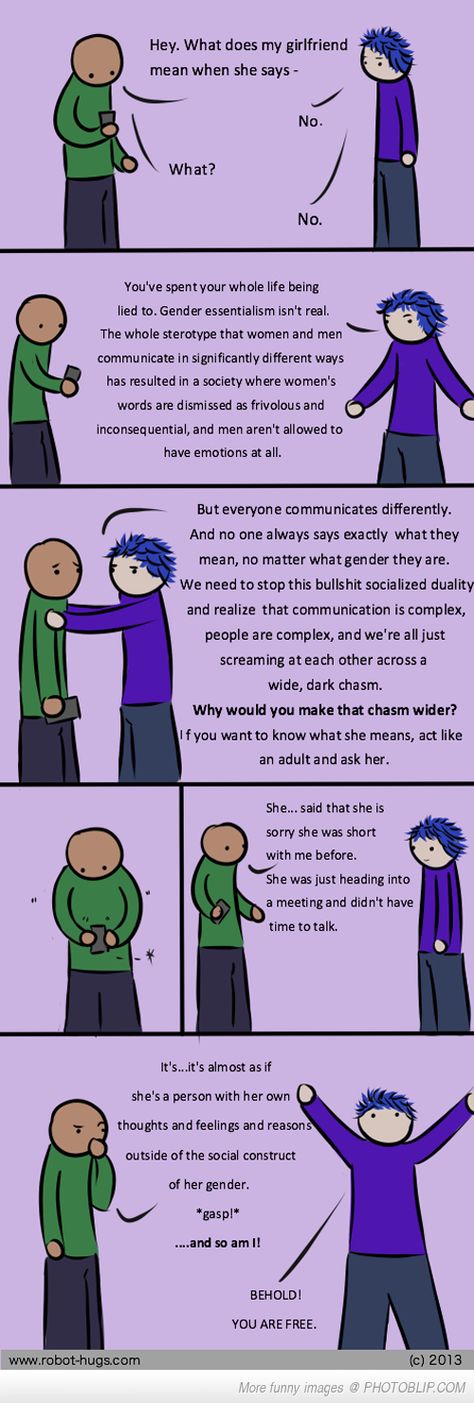
- Some lifestyle changes (like cutting out recreational drugs, alcohol, or reducing stress) may help reduce vivid dreams.
Our dreams feel so real for the same reason life feels so real
12 September 2017
And why we don't question their logic.
By Jason Murugesu
Dreams can be ludicrous, but unless we are lucky enough to be lucid dreamers, we believe every part of them. Why are you drinking champagne on a private jet with Rihanna? Why is that bumblebee telling you that you’ve hurt your girlfriend’s feelings? Why are the cybermen chasing you?
These are all questions we do not have until we wake up, and only then if we actually remember our dreams in the first place.
Dreams are our one true escape from the humdrum predictability of real life. They are better because they feel so real and are better because we do not question their logic.
But why do they feel so real? Is it our subconscious telling us something? A message from God? A vision? These questions have been debated by philosophers and drunkards alike for centuries, but modern science can now provide very real answers.
According to Dr William MacLehose, a lecturer in the History of Science and Medicine at University College London, until the 1700s, scientists explained dreaming by saying that imagination was the only part of the brain still functioning while someone slept. They believed the part of the brain that verified reality, on the other hand, was out of action, so the sleeper believed it all. Medieval texts referrred to soldiers who were too cowardly to fight an enemy in real life but then dream about being brave enough to do so later on.
Subscribe to Morning Call View all newsletters
The quick and essential guide to domestic and global politics from the New Statesman's politics team.
Select and enter your email address
Morning Call
Quick and essential guide to domestic and global politics from the New Statesman's politics team.
The Crash
A weekly newsletter helping you fit together the pieces of the global economic slowdown.World Review
The New Statesman’s global affairs newsletter, every Monday and Friday.Green Times
The New Statesman’s weekly environment email on the politics, business and culture of the climate and nature crises - in your inbox every Thursday.The Culture Edit
Our weekly culture newsletter – from books and art to pop culture and memes – sent every Friday.Weekly Highlights
A weekly round-up of some of the best articles featured in the most recent issue of the New Statesman, sent each Saturday.Ideas and Letters
A newsletter showcasing the finest writing from the ideas section and the NS archive, covering political ideas, philosophy, criticism and intellectual history - sent every Wednesday.
Events and Offers
Sign up to receive information regarding NS events, subscription offers & product updates.Your email address
Job title
- Administration / Office
- Arts and Culture
- Board Member
- Business / Corporate Services
- Client / Customer Services
- Communications
- Construction, Works, Engineering
- Education, Curriculum and Teaching
- Environment, Conservation and NRM
- Facility / Grounds Management and Maintenance
- Finance Management
- Health - Medical and Nursing Management
- HR, Training and Organisational Development
- Information and Communications Technology
- Information Services, Statistics, Records, Archives
- Infrastructure Management - Transport, Utilities
- Legal Officers and Practitioners
- Librarians and Library Management
- Management
- Marketing
- OH&S, Risk Management
- Operations Management
- Planning, Policy, Strategy
- Printing, Design, Publishing, Web
- Projects, Programs and Advisors
- Property, Assets and Fleet Management
- Public Relations and Media
- Purchasing and Procurement
- Quality Management
- Science and Technical Research and Development
- Security and Law Enforcement
- Service Delivery
- Sport and Recreation
- Travel, Accommodation, Tourism
- Wellbeing, Community / Social Services
Administration / OfficeArts and CultureBoard MemberBusiness / Corporate ServicesClient / Customer ServicesCommunicationsConstruction, Works, EngineeringEducation, Curriculum and TeachingEnvironment, Conservation and NRMFacility / Grounds Management and MaintenanceFinance ManagementHealth - Medical and Nursing ManagementHR, Training and Organisational DevelopmentInformation and Communications TechnologyInformation Services, Statistics, Records, ArchivesInfrastructure Management - Transport, UtilitiesLegal Officers and PractitionersLibrarians and Library ManagementManagementMarketingOH&S, Risk ManagementOperations ManagementPlanning, Policy, StrategyPrinting, Design, Publishing, WebProjects, Programs and AdvisorsProperty, Assets and Fleet ManagementPublic Relations and MediaPurchasing and ProcurementQuality ManagementScience and Technical Research and DevelopmentSecurity and Law EnforcementService DeliverySport and RecreationTravel, Accommodation, TourismWellbeing, Community / Social Services
Visit our privacy Policy for more information about our services, how New Statesman Media Group may use, process and share your personal data, including information on your rights in respect of your personal data and how you can unsubscribe from future marketing communications.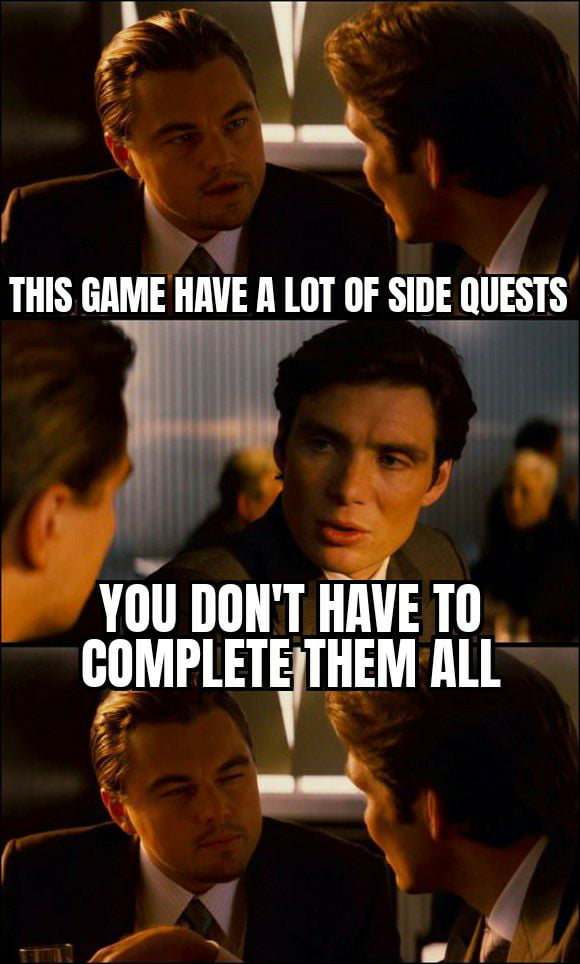
THANK YOU
In the 20th century, the groundbreaking neurologist Sigmund Freud believed dreams were a form of “wish fulfillment” and that wet dreams were the ultimate expression of that “wish fulfilment”.
Scientists today can tell whether someone is dreaming and what they might be dreaming about by simply looking at electroencephalogram (EEG) scans. The study published earlier this year in Nature Neuroscience was the first to demonstrate that brain activity while dreaming mirrored that of the subject when he or she was doing the same thing when awake. For example, the same parts of the brain recruited in facial recognition were recruited during dreams which included faces.
While most of us do not have to think about engaging an enemy in battle, as medieval dreamers did, a similar theme persists in our dreams today as Professor Mark Blagrove, a sleep scientist from Swansea University suggests – our dreams are about solving real life problems.
Studies have shown that when people are asked to note down the contents of their dreams, the vast majority are based on our real lives. Blagrove notes that while we remember the wild and crazy ones more, they only make up about one in ten of our dreams.
These studies have also found that dreams in which we overcome threats are far more prevalent than the number of threats we face in modern life. When people are asked to detail their dreams, they manage to overcome a large proportion of the threats in a realistic manner, rather than say flying away to Havana.
Dreams feel so real, Blagrove says, because they are a simulation. When you are on drugs or having a hallucination, you have a reality to compare your experience to. By contrast, when you are sleeping no such alternative exists.
Only about one in 20 times do we catch ourselves dreaming and start lucid dreaming. Blagrove points out that the inability to “spot the bizarreness of our dreams when you’re asleep could have been selected for by evolution”.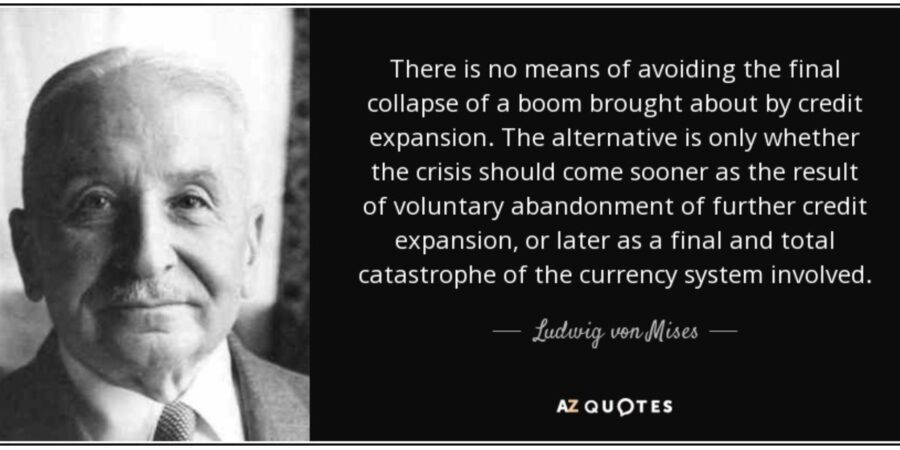 This is because dreaming could have evolved as a form of threat simulation and that in order to “practise what it’s like being in the world while asleep – you have to believe that the simulation is real”.
This is because dreaming could have evolved as a form of threat simulation and that in order to “practise what it’s like being in the world while asleep – you have to believe that the simulation is real”.
Daydreaming is a less extreme version of dreaming. It too is a form of simulation. Sometimes you can get lost in a daydream, and believe the simulation but you can easily snap out of it as you can literally “come to your senses”.
Some dream scientists are attempting to tie dream research into the science of consciousness, which Blagrove says, is itself ultimately just a “simulation of the world”.
We never really notice this simulation when we’re dreaming because the “simulation is so good”. Or in other words, our dreams feel so real for the same reason life feels so real. Your suspicions are confirmed – we’re living in the Matrix.
[See also: From the NS archive: The work of Freud]
Topics in this article : Psychology , Sigmund Freud
proof that waking dreams are real
A dream is a pivot around which all thoughts and actions revolve. A person without a dream loses the meaning of life.
A person without a dream loses the meaning of life.
Website editor
Tags:
Psychology
Astrology
VOICE Psychology
"If I wasn't a dreamer," said Clint Eastwood, "I wouldn't have achieved anything in this life." A dream is the core around which all thoughts and actions revolve. A person without a dream loses the meaning of life. But for some reason, it is believed that dreams are one thing, and reality is completely different. Nothing happened! Let's try to prove that your waking dreams are absolutely real.
WHAT IS IT?
Dream, desire, goal, motive... There are so many synonyms for this concept! Or maybe you just want to learn belly dancing. But scientists have long since sorted everything out, and so are your desires.
First, desires arise on the physiological level – you just want to eat, drink, sleep... These desires are fundamental. The next level is the desire to protect yourself and your loved ones. At the same time, if you do not feel safe, then even if nothing threatens you, you will figure out how to defend yourself. The third stage of desire is your need for love and belonging. And only then, at the fourth level, you should have ambitions and career aspirations. If these levels are interchanged, you will feel disharmony. You can reach unprecedented career heights using little: renting a one-room apartment in a disadvantaged area and eating noodles from bags. Excuses: “There is no time for personal life” will only work at the beginning, and then ... In general, you yourself understand. And only at the last, fifth level, you will want to create for the sake of the creative process itself, and not just work for a high salary. So the saying about the hungry artist has no scientific basis.
ADVERTISING - CONTINUED BELOW
According to astrologers, what you want to achieve and strive for is the voice of the cosmos in your soul. If you follow this voice completely, you will achieve harmony with yourself, and this is happiness.
The question of the truth of desires is really important. Now, if a genie appeared in front of you now, could you immediately name your three most cherished desires? Usually people call it money, love, health... Because it is accepted to wish in principle! We are social animals, and for us the opinion of the herd is more important than our own. And what: in the pursuit of money, we go to an unloved job, and for some reason we personify love with this strange creature, with whom it is not easy, while others, for the sake of a healthy lifestyle, first refuse the most delicious dishes, and then besiege the offices of psychologists. We easily confuse a dream with the illusion of this dream. And with enviable perseverance we follow the goal imposed from the outside.
And with enviable perseverance we follow the goal imposed from the outside.
“I had a client,” says psychotherapist Boris Novoderzhkin, who claimed that he dreamed of going on vacation to the Maldives. And so, he says, rain outside the window! No end!
The explanation is this: a person really wants to move away from everyone, to get away from reality, so he dreams of going to distant islands. But there you need to sunbathe, swim. But this is something he really does not want. And I want to sit in front of the TV and click the remote control. And so that no one touches. Because in the pursuit of imposed socially desirable fantasies, he simply lost himself. In America, where the religion of success and leadership reigns, psychologists' offices are overflowing with successful but unhappy people in their prime. Particularly successful women admit that if they turned back time, they would choose a path in which they would not have to sacrifice their real desires.
WHY DO IT COME TRUE?
Imagine that your desire, your fantasies are a clearly directed vector in a certain information space. There are many of these desires, and several vectors come from you. They intersect with the desire vectors of other people and "nodes" (intersection points) are formed. Your desires can be completely different, and you don’t even know this person, because he lives somewhere in Africa. When a sufficient number of vectors intersect in the “node”, then an event will occur that seems to have nothing to do with you, but it will give each of you the opportunity to realize your desire. Scientists say that this is the secret of happy accidents. Conventionally, we divide desires into material and non-material. Buying a car of this particular brand or simply having a lot of money are material needs. At first sight. But if you ask a person the question: “Why do you need this particular car, why are you not satisfied with that one?”, then it turns out that in fact he needs speed, beauty, respect and attention from that young man. That is, in fact, all our desires are intangible, and a car, for example, is only a means to achieve other desires. And therefore, when time passes, you buy this car only because you wanted it. Your dream seems to have come true, but there is no pleasure. And all because your real desires were fulfilled in a different way: the young man already paid attention or drew another, even better, and they respect you even without this car.
That is, in fact, all our desires are intangible, and a car, for example, is only a means to achieve other desires. And therefore, when time passes, you buy this car only because you wanted it. Your dream seems to have come true, but there is no pleasure. And all because your real desires were fulfilled in a different way: the young man already paid attention or drew another, even better, and they respect you even without this car.
From the point of view of psychologists, our desires come true because if we want something, then, one way or another, we move towards the goal. So, the main thing is that your goal is real.
HOW TO UNDERSTAND THIS?
We take a piece of paper, a pen and write in the first column what we want. In order. And in another column we are trying to answer the question: "Why do we really want this?".
It may be that your dream coming from your heart has simply not yet been born. She doesn't need to be rushed. She will find you. One fine day you will see that everything turned out the way you did not even dream of. But the path to a dream is paved with our desires. Start small. Follow them like a path. And don't worry if you suddenly see that you are moving away from your main dream. One day you will look back, happy and harmonious, and you will see that you didn’t dream about all this either, and you don’t need that old dream anymore.
She doesn't need to be rushed. She will find you. One fine day you will see that everything turned out the way you did not even dream of. But the path to a dream is paved with our desires. Start small. Follow them like a path. And don't worry if you suddenly see that you are moving away from your main dream. One day you will look back, happy and harmonious, and you will see that you didn’t dream about all this either, and you don’t need that old dream anymore.
In general, the main condition for a dream to come true is its more or less ghostly presence. Other factors, such as age, number of adult children, tedious work, do not matter. The person who wanted to go to the Maldives dreamed of becoming a singer in his youth. But he went the other way, persistently convincing himself that this was the right path.
“And who is stopping you from recording your song now?” the psychologist asked him. A month later, the beaming client brought his disc. Let only his friends listen to him, but he himself. After all, he had already passed the level of desire for fame and recognition. He lacked creative self-expression for complete happiness.
Let only his friends listen to him, but he himself. After all, he had already passed the level of desire for fame and recognition. He lacked creative self-expression for complete happiness.
STRATEGIES FOR FULFILLING DREAMS
How do people achieve their dreams? There are two life philosophies:
1. Don't ask for anything, they will come and give everything themselves.
Fatalism, belief in the omnipotence of fate, in predestination lives in each of us. This comes from childhood, when you know that you will always be taken care of, and as an adult, you internally believe that someone great and reasonable will arrange everything in the best way. But the law of happy accidents works if you send not one, but many vectors into the information space, and do not sit looking out the window when the prince arrives. Be calm, he will drive up, but when you least expect it. Fate does guide us through life, but it always gives us too much freedom of choice. Astrologers offer everyone to make their own birth chart, it is called natal. In it you will see in which area you will have greater success, in which you will have difficulty. This is where the action of fate ends.
Astrologers offer everyone to make their own birth chart, it is called natal. In it you will see in which area you will have greater success, in which you will have difficulty. This is where the action of fate ends.
2. Take action! A rolling stone gathers no moss!
The French philosopher Jean Paul Sartre came up with such a philosophical direction - existentialism. Briefly, its essence is that a person does absolutely everything in his life himself. And we can only rely on ourselves and our minds. But is it necessary to be active in achieving your goals to the point of exhaustion? Is it necessary to conform to someone's idea of happiness? As always, the surest strategy is the golden mean: listen to yourself and act at the right moment.
HOW TO MAKE WISHES COME TRUE?
Magic Tips:
- Make your own "Wish Map". Such cards came to Europe from the East, and historians say that all great people had them.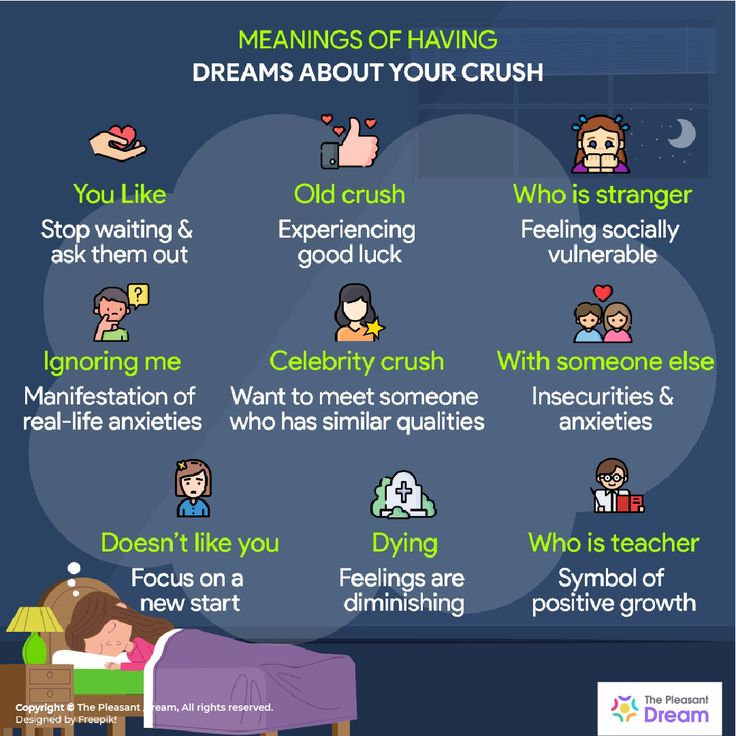 So, take a stack of magazines, scissors and glue. Glue your photo on a large sheet of paper in the center. Now just flip through the magazines and cut out everything you oh-really wish you had. And not only material, but also verbally expressed. Let's say you see a takeaway in an interview with a star: "That's how I became a famous writer." And what you want most in life is to be a writer. Go ahead - cut out the words "became a famous writer" and stick it next to you. Dream car, dream house, dream laptop, the most cherished desires written in colored letters. Well, then look at him in the morning and smile. Just don't show anyone why people need to know about your most cherished.
So, take a stack of magazines, scissors and glue. Glue your photo on a large sheet of paper in the center. Now just flip through the magazines and cut out everything you oh-really wish you had. And not only material, but also verbally expressed. Let's say you see a takeaway in an interview with a star: "That's how I became a famous writer." And what you want most in life is to be a writer. Go ahead - cut out the words "became a famous writer" and stick it next to you. Dream car, dream house, dream laptop, the most cherished desires written in colored letters. Well, then look at him in the morning and smile. Just don't show anyone why people need to know about your most cherished.
- Many books have been written about the magical properties of feng shui. This is not only a guide to harmonizing space, but also a ritual, thanks to which you assert yourself in your abilities. And where there is confidence, there are achievements. Try it, it really works!
Practical Advice:
— American scientist Karen Pryor, in her book Don't Growl the Dog, tells you how to train yourself for success. Everything starts with little things. Now, if you are baking a pie and you drop the pan. What are you saying? Something like: "What a mess I am!". But when the pie succeeds, you are unlikely to praise yourself. And you need to do just the opposite. In case of failures, it is better to remain silent, and in case of any smallest success, praise yourself. Karen Pryor gives the example of a friend who wanted to learn how to play tennis. Every time the ball fell, he told himself he was an idiot. And he didn't succeed. On Karen's advice, he began to say to himself for each successful hit: "Well done!", And when the ball fell, he did not attach any importance to it. And what! Literally a week later, he was already playing amazingly. Love yourself!
Everything starts with little things. Now, if you are baking a pie and you drop the pan. What are you saying? Something like: "What a mess I am!". But when the pie succeeds, you are unlikely to praise yourself. And you need to do just the opposite. In case of failures, it is better to remain silent, and in case of any smallest success, praise yourself. Karen Pryor gives the example of a friend who wanted to learn how to play tennis. Every time the ball fell, he told himself he was an idiot. And he didn't succeed. On Karen's advice, he began to say to himself for each successful hit: "Well done!", And when the ball fell, he did not attach any importance to it. And what! Literally a week later, he was already playing amazingly. Love yourself!
- Tell your loved one about your dream in detail or write an endless story about it. You will see that every time you will have something to change and detail. Speaking out your desires, you once again listen to yourself: is this what you want? And once you understand what you want, you will move in the right direction.
- Look for like-minded people. Only people who think the same way as you can understand you and give you confidence in your abilities. With the help of such a company, it will be easier for you to make the so-called "quantum leap". There is such a concept in psychology that came from physics. The bottom line is that a particle under the pressure of circumstances makes a sharp jump to another level. And there its direction, functions, etc. change. If you want to change the quality of life, start changing your environment and perception of life to the one that best suits you. Take action and the world will respond.
TIPS FROM OUTSIDE
Resistance of circumstances
Is it worth overcoming resistance? You want to work in this particular place, but you are not accepted here. You want to be with this person, but he is unavailable all the time. You want to buy this dress, but your size is not available. Relax and think - do you really need all this? On closer examination, it may turn out that you are achieving something because of hurt pride and pride, or because, for example, you saw this dress at a famous star, but you, by and large, don’t need it. In this case, the strategy of fatalism is best suited. Time will put everything in its place.
Relax and think - do you really need all this? On closer examination, it may turn out that you are achieving something because of hurt pride and pride, or because, for example, you saw this dress at a famous star, but you, by and large, don’t need it. In this case, the strategy of fatalism is best suited. Time will put everything in its place.
Astropsychologist Marta Slavutich commented on this as follows: “Big and real gifts from fate must be earned. And you have to fight for your dream. If you get everything easily and immediately, then you will need to pay for it later. The main thing is to survive the trials with honor and patience.”
Failures and defeats
Freud has a theory about "I" and "over I". Each time a child receives a limitation of his desires, a higher level of Personality is formed in him. You saw how piles are driven at the construction site - one blow, two blows, slowly, rhythmically. Every failure of yours is a blow to you. Painful, hard to bear. But this blow makes you think about yourself and those around you. The Soviet philosopher Mirab Mamardashvili wrote about this as wells of suffering, where wisdom is born. A person who has not suffered cannot fully experience happiness and understand his true desires.
Every failure of yours is a blow to you. Painful, hard to bear. But this blow makes you think about yourself and those around you. The Soviet philosopher Mirab Mamardashvili wrote about this as wells of suffering, where wisdom is born. A person who has not suffered cannot fully experience happiness and understand his true desires.
Sloth
"I'm too lazy!" - said Emelya in a famous fairy tale. Once he took just one step, and all his wishes began to come true. But is it really that great - a magical pike? Imagine if all your wishes come true! What a way to control yourself!
Actually, being lazy is not such a bad thing. My friend, for example, is still grateful that somehow she became too lazy to go to work, and she lied that she had the flu, and it was on this day that the air conditioner crashed from the ceiling onto her desk. If she had been sitting there, she would have been killed for sure. Laziness may turn out to be a hint from an inner voice that it’s better not to do this now. In the East, for example, slowness is considered the key to success. That is, sometimes being lazy is useful, the main thing is not to get carried away with it.
Laziness may turn out to be a hint from an inner voice that it’s better not to do this now. In the East, for example, slowness is considered the key to success. That is, sometimes being lazy is useful, the main thing is not to get carried away with it.
WHAT TO DO IF YOU WISH... NO?
WHAT TO DO IF YOU WISH... NO?
In fact, this is a topic for a separate article. When devastation comes, a sense of the meaninglessness of life: “Well, I go to my good job, well, I’ll buy another dress, well, let’s go to the country with my husband for the weekend ...”. You used to dream about all this, but now everything seems so ordinary. Why did it happen so? Where is the promised harmony? There may be several reasons:
1. Achieving all this, you have spent a lot of mental strength and now you need rest and relaxation. And just now new dreams are ripening in your soul. Wait out this period, do not rush headlong at least somewhere, at least for something.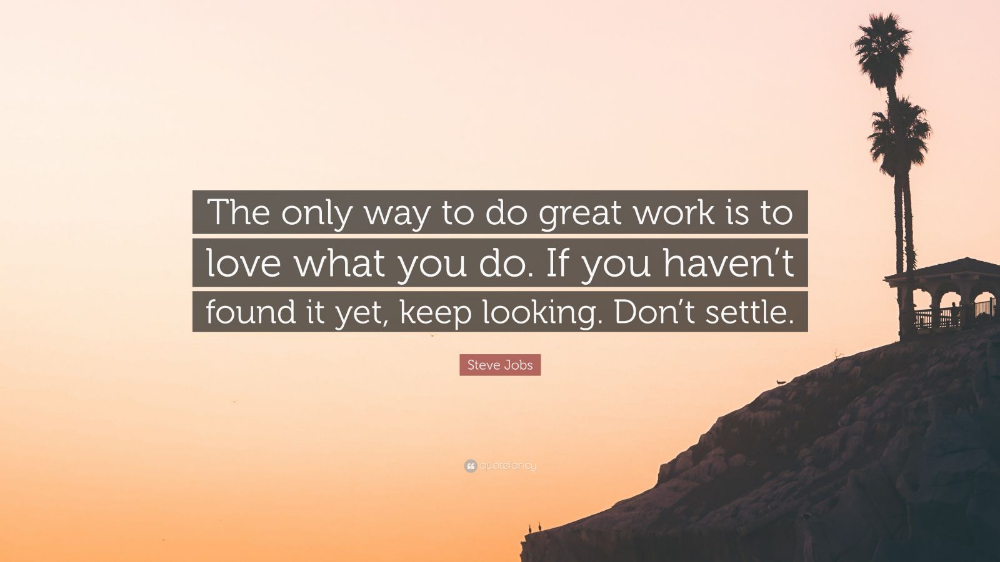
2. Everything came to you easily, you spent almost no energy. It means that a period of stagnation has come in your life, and you need to shake things up, try something that is completely at odds with your current life, which has become too familiar.
3. You never set yourself serious tasks because you doubted your abilities. You just went with the flow. And the desires remained unfulfilled. So, right now you need to experience this dizzying feeling of omnipotence when your dreams come true. Dig into your soul, remember what you always wanted, and do it! You'll see - it's easy!
90,000 7 steps that will help to realize your dreams in reality
- Home
- Blog
- 7 Steps, which will help to embody your dreams
05.01.2017
Category:
Efficiency in life and life efficiency and life efficiency and life efficiency and life efficiency and life efficiency and life efficiency and life efficiency and life efficiency and life efficiency and life efficiency and life efficiency and life efficiency and life efficiency and life efficiency and life efficiency and life efficiency and life efficiency and life efficiency and life efficiency and life efficiency and life efficiency.
New Year is the time when dreams come to life. These days we believe that thanks to the magic of the New Year, miracles become possible, and even the wildest wishes can come true. But do we really need the help of magic to make our dreams come true? We have an answer to this question.
As you know, Performia technology is based on a deep understanding of people and their true abilities. This knowledge gives us confidence that a person is able to shape the reality around him and make things go the way he wants. In other words, it is in your power to fulfill all your desires and goals. In this article, I want to share with you how to dream so that your dreams become reality faster.
In other words, it is in your power to fulfill all your desires and goals. In this article, I want to share with you how to dream so that your dreams become reality faster.
The 20th century philosopher L. Ron Hubbard found out that a person's ability to fulfill his desires is directly related to his ability to think causally. Let's figure out what this means. Cause is a circumstance giving rise to other phenomena, that is, consequences. When a person thinks causally, he does not just decide that some state will come or some action will take place, he also embodies it in reality.
Such causal thinking, which leads to the implementation of the plan, Hubbard called postulation. Think of some good things that happened in your life. If you carefully analyze your past, you will notice that these events were always preceded by the moment when you decided that they should happen. This decision is a postulate. We can say that 9Postulate 0171 is the truth that you created yourself.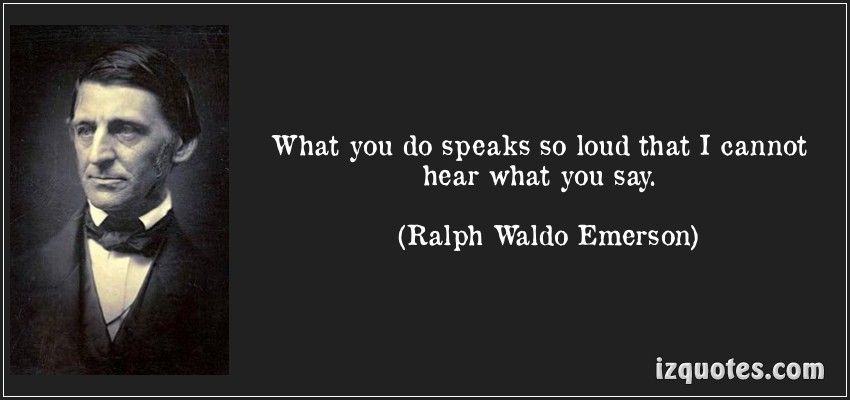
The correct postulation of is the key to the successful realization of a dream. After all, the fulfillment or non-fulfillment of your desires is just a consequence. And you are the cause of this consequence. Your way of thinking, the decisions you make and the actions you take determine whether your aspirations will come true. So what do you need to do to make your dreams come true?
Postulation rules that will lead you to fulfill your dream:
1. Think big
Dream 100 percent! Remove any restrictors. Don't let circumstances or social stereotypes hold you back from your dream. As Steve Jobs said in his address to the graduates of Stanford University: “Have the courage to follow your heart and your intuition. They already know exactly what you really want to be.”
To make it easier for you to remove unnecessary restrictions, formulate your dream, being in the open space , where there is a lot of space. For example, near the sea or in the mountains. There, you will not be “pressed” by a limited space, and it will be easier for you to outline what you want as fully and on a large scale as possible. A sure sign that you correctly formulate your dream is an improvement in mood, an emotional upsurge. When you think about what is valuable to you and what you really want to achieve, it will invariably inspire you and cause joy.
For example, near the sea or in the mountains. There, you will not be “pressed” by a limited space, and it will be easier for you to outline what you want as fully and on a large scale as possible. A sure sign that you correctly formulate your dream is an improvement in mood, an emotional upsurge. When you think about what is valuable to you and what you really want to achieve, it will invariably inspire you and cause joy.
Dream, leave behind all doubts and worries, even if your dreams seem too unattainable, or if you do not have enough resources now to realize them. Apple was born thanks to three friends who decided to implement a crazy idea for that time. The first computers of the world-famous company today were assembled in a garage. Within 10 years, Apple employed more than 4,000 people and was valued at $2 billion. Later in one of the advertising campaigns, Steve Jobs said that "only a madman believes that he can change the world - and therefore changes it." Nothing is impossible for those who sincerely strive for their dream, no matter how crazy it may seem at first glance.
2. Do not hesitate
As practice shows, the only thing that can prevent a person from fulfilling his dream is the decisions of the person himself . Let's see how this happens.
Have you noticed that when you start dreaming, you soon have doubts, and thoughts “probably I won’t be able to do this”, “it’s better to choose a more realistic goal”? These thoughts then turn into decisions that sound like “I definitely can’t do this.” Once you make such a decision, you yourself do not allow your dream to come true. People whose cherished dreams did not come true once simply believed their doubts and decided that their goals were unattainable.
Alexandre Dumas père said: “The dreams that are not in doubt are the easiest to realize.” Therefore, guard your dream from doubt. Do not allow any negative ideas and do not listen to the voice of the inner "adviser" who says that you cannot do something. Focus only on the dream you want to achieve.
3. Don't worry. Along with doubt, anxiety is the main enemy of dreams. It dissipates the energy needed to make a dream come true. Worry takes your attention away from the desired goal and focuses it on the problems that prevent you from achieving it. At the same time, anxiety does not help you find a solution to these problems, but only makes them stronger. When you only worry about something, you make the problem the cause, and you yourself become its effect. As a result, you do not deal with the problem, but it deals with you.
How can this be avoided? You need to stop worrying and start coping with problems. Philosopher Ron Hubbard described an exercise that will help you deal with anxiety . Ask yourself what troubles you have, what difficulties you are currently experiencing. Make a list of all the problems you have. Read the first one aloud and ask yourself, “How can I deal with this problem?” Write down all the ideas that come to you and move on to the next trouble with the same question. After you have gone through all the items on your list, go back to the first problem and ask yourself: “How do I deal with this problem now?” Record all decisions that come up. After going through the list of problems several times in this way, you will notice that the situation has begun to change.
After you have gone through all the items on your list, go back to the first problem and ask yourself: “How do I deal with this problem now?” Record all decisions that come up. After going through the list of problems several times in this way, you will notice that the situation has begun to change.
By doing this exercise, you will stop worrying and start solving your problems. This is because, in trying to find a way to deal with trouble, you return to the state of reason. After all, if you only worry, then you do not affect the problem itself, thereby making it stronger than you. And when you are focused on finding solutions, then you can already do something with the existing difficulties and change the situation in your favor.
4. Be genuinely interested in your goal
Being interested in something, you show increased attention to the object of your interest . And attention is what fills the dream with life and feeds it. In our lives, only those areas where we direct our attention can develop and flourish. Constant concentration of attention on the desired goal is a prerequisite for its implementation. Do you know what happens when you take your attention away from your dream, distracted by doubts, worries or some other factors? At this moment, you simply “de-energize” the dream and deprive it of its strength.
In our lives, only those areas where we direct our attention can develop and flourish. Constant concentration of attention on the desired goal is a prerequisite for its implementation. Do you know what happens when you take your attention away from your dream, distracted by doubts, worries or some other factors? At this moment, you simply “de-energize” the dream and deprive it of its strength.
Attention is like a tightrope that connects you to the goal you want to achieve. With it, you will be able to stay on course and overcome even the steepest climb. But without it, you will have to face additional difficulties on the way to your dream.
Therefore, look in the direction of your goals as often as possible. Ask yourself what else you can do to achieve them. Celebrate any progress towards your dreams. And most importantly, sincerely believe that what you are striving for will happen. Thus, you will give your dream the energy it needs. And this will lead you to new opportunities in order to make it a reality.
5. Formulate your dream correctly
Formulate your dream in the present tense as if it is already happening and you are the cause of what is happening. Abstract formulations of desires will not bring you closer to the realization of your goals. You need well-formulated postulates. For example, replace the abstract “it would be great to go to Barcelona” with the confident “I’m going to Barcelona in June 2017”. This will help you focus on the specific results that need to be achieved.
6. Take action
Ancient wisdom says that a journey of a thousand miles begins with the first step . However, if you do not take this step, then you will not get closer to the goal. For something to happen, you need to take action.
The secret to achieving goals is to take actions at any given moment that can lead to their implementation. All the dreams that have come true have come true only because someone has systematically taken the steps necessary to make them come true. If you don't act, your dream will forever remain just a great idea.
If you don't act, your dream will forever remain just a great idea.
Many people never start pursuing their dream just because it seems too far away and unattainable for them. But, as Henry Ford rightly said, “Even great goals can be achieved if you take enough small steps.” So once you define your dream, choose at least one step that can bring you closer to it, and take it. Then choose another simple step that you can take right now and do it. Thus, soon you will be just one step away from the realization of your dreams.
7. Don't give up!
All people who have fulfilled their dreams are united by the fact that they did not give up, faced with difficulties and obstacles on the way to their goals. They didn't let problems stop them, and they were constantly looking for new ways to achieve the desired results.
Each of us can find many reasons why his dream is “impossible” to come true. There is no such person who would not suffer defeats on the way to the goal. But in the end, only those who do not give up in the face of difficulties and continue to move on achieve their dreams. The experience of many successful entrepreneurs confirms that a person who does not give up cannot be defeated.
But in the end, only those who do not give up in the face of difficulties and continue to move on achieve their dreams. The experience of many successful entrepreneurs confirms that a person who does not give up cannot be defeated.
Take, for example, Harland Sanders, the founder of the KFC restaurant chain (Kentucky Fried Chicken). When he was just over 60 years old, he was in a difficult financial situation and had no regular source of income. To remedy the situation, Sanders began to go around restaurants and eateries, offering the owners to buy his signature fried chicken recipe and take him as business partners. He heard over 1,000 rejections before he got his first contract. If Sanders gave up after 200 or even 9On the 00th refusal, he would have been an ordinary pensioner living on a minimum pension. But he did not let the problems stop him, and as a result, he became the founder of a world famous company. The Sanders portrait is still the brand name for more than 18,000 KFC restaurants around the world.
When asked how he was able to achieve his goal, Sanders replied: “I decided for myself that I would achieve something. And no amount of work, labor or money would keep me from giving everything to the cause. I have always done this, and thanks to this I won.” This is exactly how you need to go towards your dream: concentrate your attention on it and do everything possible to achieve it, not retreating in the face of difficulties. And then you can make your dream come true.
I wish you to make your dreams come true!
Alexey Samoilenko
Source: Performia.com.ua
ago Further
Tags:
Motivation
Dreams
Self -realization
Time
7 steps, which will help embody your dreams in reality 7 steps who will help make your dreams come true Bogushtime
New Year is the time when dreams come to life. These days we believe that thanks to the magic of the New Year, miracles become possible, and even the wildest wishes can come true. But do we really need the help of magic to make our dreams come true? We have an answer to this question.
But do we really need the help of magic to make our dreams come true? We have an answer to this question.
New Year is the time when dreams come to life. These days we believe that thanks to the magic of the New Year, miracles become possible, and even the wildest wishes can come true. But do we really need the help of magic to make our dreams come true? We have an answer to this question.
As you know, Performia technology is based on a deep understanding of people and their true abilities. This knowledge gives us confidence that a person is able to shape the reality around him and make things go the way he wants. In other words, it is in your power to fulfill all your desires and goals. In this article, I want to share with you how to dream so that your dreams become reality faster.
The 20th century philosopher L. Ron Hubbard found that a person's ability to fulfill his desires is directly related to his ability to think causally. Let's figure out what this means. Cause is a circumstance giving rise to other phenomena, that is, consequences. When a person thinks causally, he does not just decide that some state will come or some action will take place, he also embodies it in reality.
Cause is a circumstance giving rise to other phenomena, that is, consequences. When a person thinks causally, he does not just decide that some state will come or some action will take place, he also embodies it in reality.
Such causal thinking, which leads to the implementation of the plan, Hubbard called postulation. Think of some good things that happened in your life. If you carefully analyze your past, you will notice that these events were always preceded by the moment when you decided that they should happen. This decision is a postulate. We can say that 9Postulate 0171 is the truth that you created yourself.
The correct postulation of is the key to the successful realization of a dream. After all, the fulfillment or non-fulfillment of your desires is just a consequence. And you are the cause of this consequence. Your way of thinking, the decisions you make and the actions you take determine whether your aspirations will come true. So what do you need to do to make your dreams come true?
So what do you need to do to make your dreams come true?
Postulation rules that will lead you to fulfill your dream:
1. Think big
Dream 100 percent! Remove any restrictors. Don't let circumstances or social stereotypes hold you back from your dream. As Steve Jobs said in his address to the graduates of Stanford University: “Have the courage to follow your heart and your intuition. They already know exactly what you really want to be.”
To make it easier for you to remove unnecessary restrictions, formulate your dream, being in the open space , where there is a lot of space. For example, near the sea or in the mountains. There, you will not be “pressed” by a limited space, and it will be easier for you to outline what you want as fully and on a large scale as possible. A sure sign that you correctly formulate your dream is an improvement in mood, an emotional upsurge.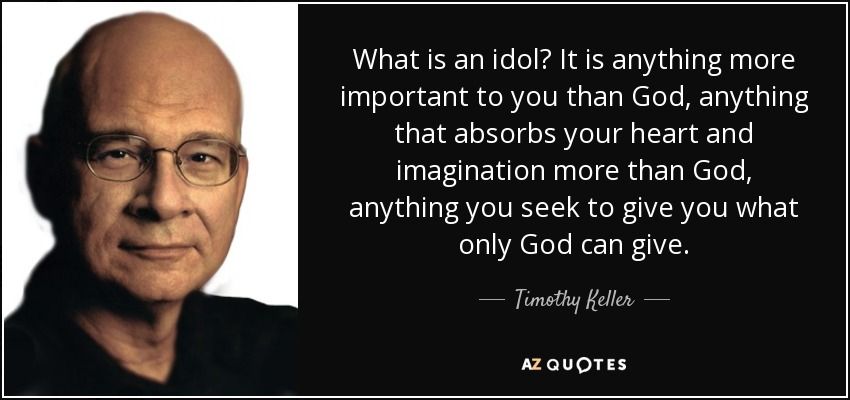 When you think about what is valuable to you and what you really want to achieve, it will invariably inspire you and cause joy.
When you think about what is valuable to you and what you really want to achieve, it will invariably inspire you and cause joy.
Dream, leave behind all doubts and worries, even if your dreams seem too unattainable, or if you do not have enough resources now to realize them. Apple was born thanks to three friends who decided to implement a crazy idea for that time. The first computers of the world-famous company today were assembled in a garage. Within 10 years, Apple employed more than 4,000 people and was valued at $2 billion. Later in one of the advertising campaigns, Steve Jobs said that "only a madman believes that he can change the world - and therefore changes it." Nothing is impossible for those who sincerely strive for their dream, no matter how crazy it may seem at first glance.
2. Do not hesitate
As practice shows, the only thing that can prevent a person from fulfilling his dream is the decisions of the person himself .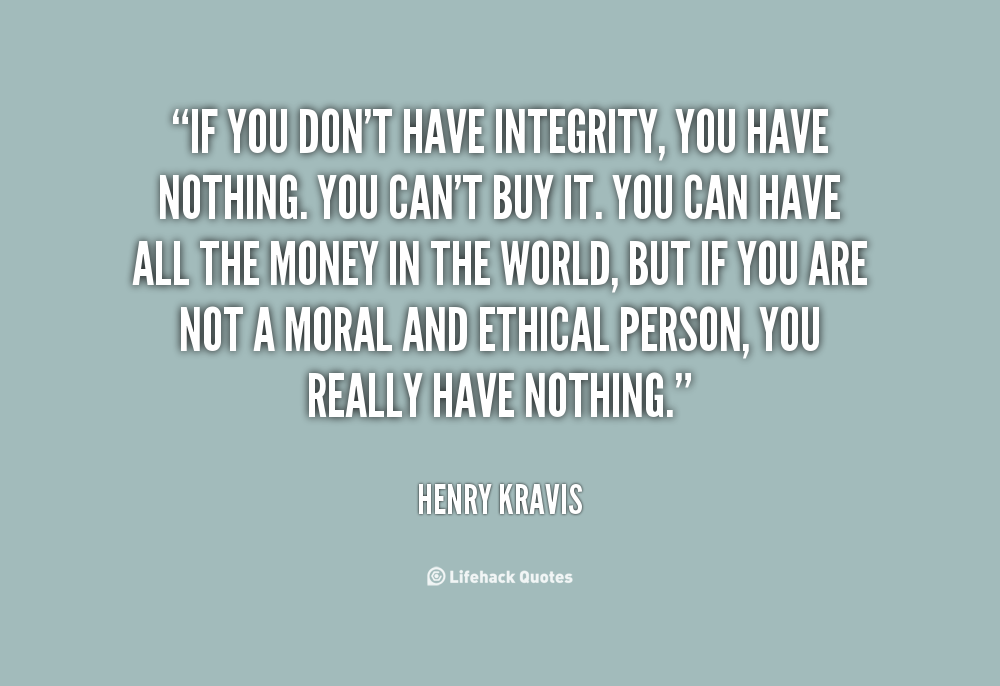 Let's see how this happens.
Let's see how this happens.
Have you noticed that when you start dreaming, you soon have doubts, and thoughts “probably I won’t be able to do this”, “it’s better to choose a more realistic goal”? These thoughts then turn into decisions that sound like “I definitely can’t do this.” Once you make such a decision, you yourself do not allow your dream to come true. People whose cherished dreams did not come true once simply believed their doubts and decided that their goals were unattainable.
Alexandre Dumas père said: “The dreams that are not in doubt are the easiest to realize.” Therefore, guard your dream from doubt. Do not allow any negative ideas and do not listen to the voice of the inner "adviser" who says that you cannot do something. Focus only on the dream you want to achieve.
3. Don't worry. Along with doubt, anxiety is the main enemy of dreams. It dissipates the energy needed to make a dream come true. Worry takes your attention away from the desired goal and focuses it on the problems that prevent you from achieving it. At the same time, anxiety does not help you find a solution to these problems, but only makes them stronger. When you only worry about something, you make the problem the cause, and you yourself become its effect. As a result, you do not deal with the problem, but it deals with you.
At the same time, anxiety does not help you find a solution to these problems, but only makes them stronger. When you only worry about something, you make the problem the cause, and you yourself become its effect. As a result, you do not deal with the problem, but it deals with you.
How can this be avoided? You need to stop worrying and start coping with problems. Philosopher Ron Hubbard described an exercise that will help you deal with anxiety . Ask yourself what troubles you have, what difficulties you are currently experiencing. Make a list of all the problems you have. Read the first one aloud and ask yourself, “How can I deal with this problem?” Write down all the ideas that come to you and move on to the next trouble with the same question. After you have gone through all the items on your list, go back to the first problem and ask yourself: “How do I deal with this problem now?” Record all decisions that come up. After going through the list of problems several times in this way, you will notice that the situation has begun to change.
By doing this exercise, you will stop worrying and start solving your problems. This is because, in trying to find a way to deal with trouble, you return to the state of reason. After all, if you only worry, then you do not affect the problem itself, thereby making it stronger than you. And when you are focused on finding solutions, then you can already do something with the existing difficulties and change the situation in your favor.
4. Be genuinely interested in your goal
Being interested in something, you show increased attention to the object of your interest . And attention is what fills the dream with life and feeds it. In our lives, only those areas where we direct our attention can develop and flourish. Constant concentration of attention on the desired goal is a prerequisite for its implementation. Do you know what happens when you take your attention away from your dream, distracted by doubts, worries or some other factors? At this moment, you simply “de-energize” the dream and deprive it of its strength.
Attention is like a tightrope that connects you to the goal you want to achieve. With it, you will be able to stay on course and overcome even the steepest climb. But without it, you will have to face additional difficulties on the way to your dream.
Therefore, look in the direction of your goals as often as possible. Ask yourself what else you can do to achieve them. Celebrate any progress towards your dreams. And most importantly, sincerely believe that what you are striving for will happen. Thus, you will give your dream the energy it needs. And this will lead you to new opportunities in order to make it a reality.
5. Formulate your dream correctly
Formulate your dream in the present tense as if it is already happening and you are the cause of what is happening. Abstract formulations of desires will not bring you closer to the realization of your goals. You need well-formulated postulates. For example, replace the abstract “it would be great to go to Barcelona” with the confident “I’m going to Barcelona in June 2017”. This will help you focus on the specific results that need to be achieved.
This will help you focus on the specific results that need to be achieved.
6. Take action
Ancient wisdom says that a journey of a thousand miles begins with the first step . However, if you do not take this step, then you will not get closer to the goal. For something to happen, you need to take action.
The secret to achieving goals is to take actions at any given moment that can lead to their implementation. All the dreams that have come true have come true only because someone has systematically taken the steps necessary to make them come true. If you don't act, your dream will forever remain just a great idea.
Many people never start pursuing their dream just because it seems too far away and unattainable for them. But, as Henry Ford rightly said, “Even great goals can be achieved if you take enough small steps.” So once you define your dream, choose at least one step that can bring you closer to it, and take it.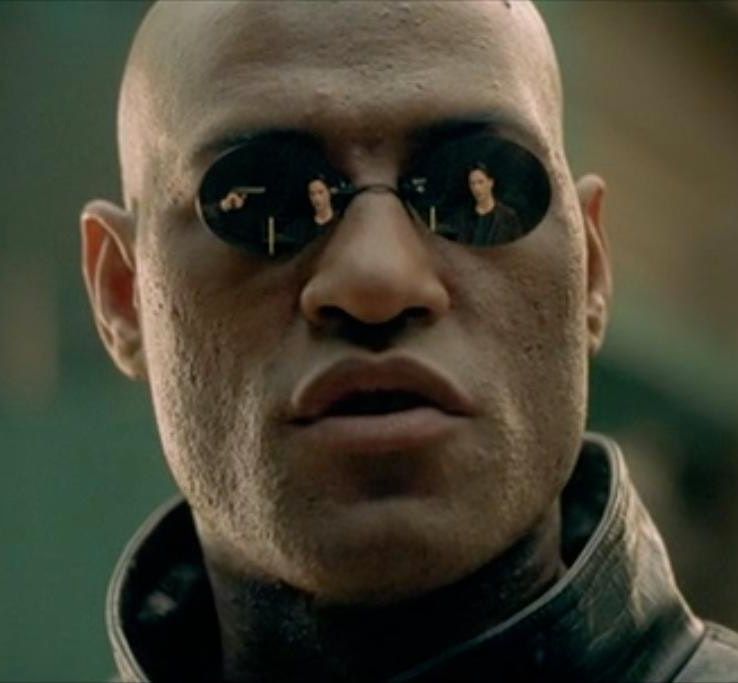 Then choose another simple step that you can take right now and do it. Thus, soon you will be just one step away from the realization of your dreams.
Then choose another simple step that you can take right now and do it. Thus, soon you will be just one step away from the realization of your dreams.
7. Don't give up!
All people who have fulfilled their dreams are united by the fact that they did not give up, faced with difficulties and obstacles on the way to their goals. They didn't let problems stop them, and they were constantly looking for new ways to achieve the desired results.
Each of us can find many reasons why his dream is “impossible” to come true. There is no such person who would not suffer defeats on the way to the goal. But in the end, only those who do not give up in the face of difficulties and continue to move on achieve their dreams. The experience of many successful entrepreneurs confirms that a person who does not give up cannot be defeated.
Take, for example, Harland Sanders, the founder of the KFC restaurant chain (Kentucky Fried Chicken). When he was just over 60 years old, he was in a difficult financial situation and had no regular source of income. To remedy the situation, Sanders began to go around restaurants and eateries, offering the owners to buy his signature fried chicken recipe and take him as business partners. He heard over 1,000 rejections before he got his first contract. If Sanders gave up after 200 or even 9On the 00th refusal, he would have been an ordinary pensioner living on a minimum pension. But he did not let the problems stop him, and as a result, he became the founder of a world famous company. The Sanders portrait is still the brand name for more than 18,000 KFC restaurants around the world.
When he was just over 60 years old, he was in a difficult financial situation and had no regular source of income. To remedy the situation, Sanders began to go around restaurants and eateries, offering the owners to buy his signature fried chicken recipe and take him as business partners. He heard over 1,000 rejections before he got his first contract. If Sanders gave up after 200 or even 9On the 00th refusal, he would have been an ordinary pensioner living on a minimum pension. But he did not let the problems stop him, and as a result, he became the founder of a world famous company. The Sanders portrait is still the brand name for more than 18,000 KFC restaurants around the world.
When asked how he was able to achieve his goal, Sanders replied: “I decided for myself that I would achieve something. And no amount of work, labor or money would keep me from giving everything to the cause. I have always done this, and thanks to this I won.” This is exactly how you need to go towards your dream: concentrate your attention on it and do everything possible to achieve it, not retreating in the face of difficulties.



